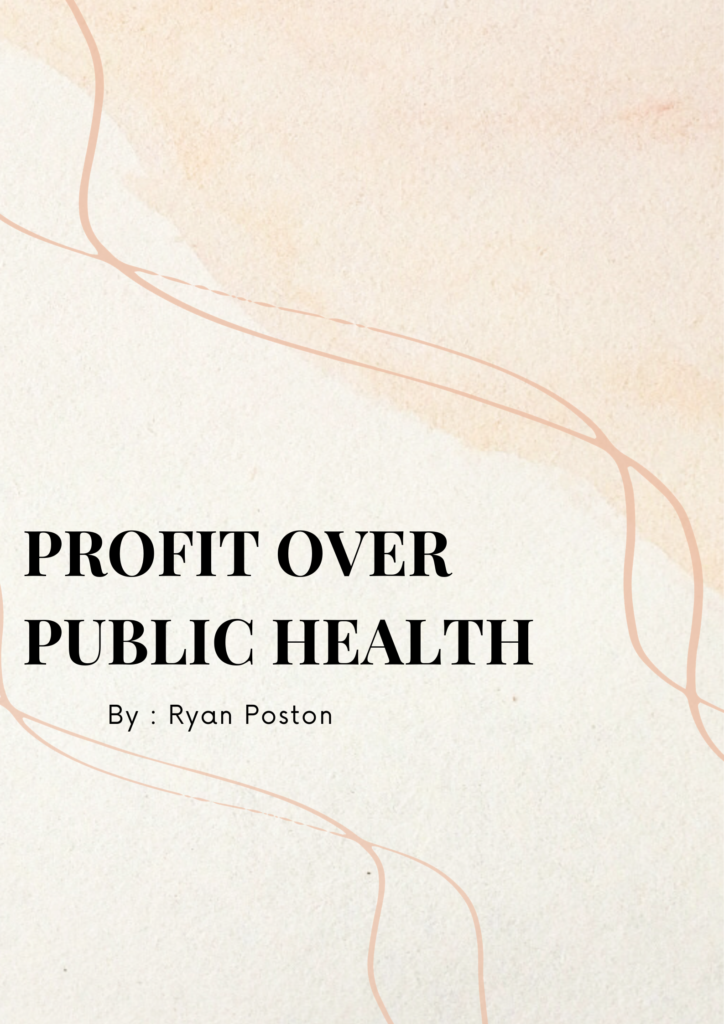In a world where public health and well-being have taken center stage, it is surprising to see companies continue to promote tobacco, cigarettes and cigarette products, despite the well-known and adamant proof which links the consumption of these products to a multitude of health issues. This raises an important question, why do companies engage in promoting a product that they know is harmful? The answer lies in the goal of the supplier and the consumer whether its economic interests, profit, ethical advancement or pleasure.
One of the most straightforward explanations for the relentless promotion of tobacco products is the economic enticement. The tobacco industry is a multibillion-dollar global enterprise, despite declining smoking rates in many parts of the world, it continues to generate enormous profits. Companies that produce and market tobacco products prioritize their bottom line over public health concerns which is not a very ethical standpoint. It’s a sad but true reality that these companies often prioritize their pockets and profits over the well-being of their customers.
Tobacco is a unique product in the sense that it is highly addictive. The nicotine found in tobacco products is a powerful stimulant, making it difficult for individuals to quit once they become regular users. This addiction, in addition with aggressive marketing campaigns, creates a loyal customer base. Companies are well aware that customers who start using their products at a young age are likely to remain lifelong users, ensuring a steady stream of revenue expectantly from that one individual’s lifetime, so imagine millions more. While society’s perception of smoking has evolved, and many countries have made strict regulations and taxes on tobacco products, the tobacco industry still operates within the bounds of the law. These companies exploit legal loopholes and actively lobby against stricter regulations to maintain their freedom to advertise and promote their products. This persistent influence on legislation helps keep the industry alive.
For some companies, promoting tobacco products represents a profound ethical situation. Some employees within these organizations may have a problem with the moral implications of selling a product known to be harmful. However, economic pressures often outweigh ethical concerns because no individual would rather go hungry sacrificing morals and beliefs to save the next man’s life. This leads to a situation where employees and executives must weigh out their personal beliefs with their professional responsibilities. Most of the individuals that work for these tobacco companies have a family and needs that they have to provide for, so they have to make the choice of if they want to provide for their family or have to find a new outlook on their product or their multibillion-dollar business because it is harmful to its consumers.
The promotion of tobacco and cigarettes by companies, despite knowing their detrimental health effects, is a deeply troubling issue. Profit motives, addiction-driven customer loyalty, a legal and regulatory framework that permits and pushes it, and ethical predicaments all contribute to this puzzling situation. While progress has been made in reducing smoking rates and increasing awareness of the health risks associated with tobacco, the tobacco industry’s persistent promotion of these products remains a formidable challenge. In our pursuit of a healthier society, it is very important that we continue to address these issues and advocate for stricter regulations to disrupt this dangerous promotion, all while respecting people’s personal choices and moral complications that guides and shapes this ongoing debate.
